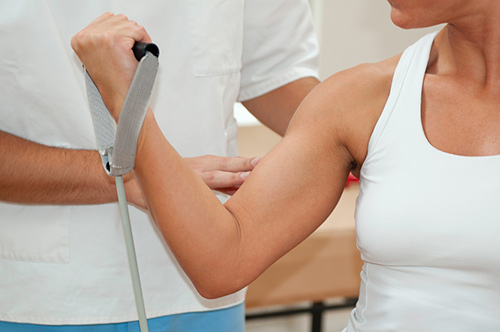
The first of these two is Social Work. Now, when most people think of the words “social worker” images of orphans and what not tend to come to mind. However, in the hospital setting, social work tends to focus more on ensuring that you’ll have the appropriate amount of care and support once you leave the hospital. Social workers (sometimes referred to as “Discharge Planners”) can help patients get set up with either inpatient or outpatient rehabilitation, depending upon what’s best for that individual and their situation. They can also contribute to arrange Home Health if needed, and a whole bevy of other things, too. They’ll probably be pretty unobtrusive during your stay, but just know that they’re there, working in the background, to ensure that you get the absolute best and most appropriate level of post-hospital care possible.
One of the other folks/departments that will stop in to see you will be occupational therapy. Even though most people aren’t exactly sure what it is that occupational therapists do, they’re kind of invaluable – their goal is to help patients of all ages learn/relearn how to participate in everyday activities. Following your surgery, they’ll come to visit you and will probably bring in a whole host of interesting implements, too. Depending on what type of surgery you’ve had, there will be certain things that you simply won’t be able to do for a while afterward. For instance, following a lower back surgery, you’ll be told not to bend or twist/turn for at least several weeks – this makes doing things like picking up something off the floor, getting dressed (it’s hard to put shoes/socks/pants on without bending over), and bathing relatively difficult. Fortunately, they’ve got all different types of items to help you out! Other surgeries, be they knee, hip, shoulder, etc., all come with challenges – the goal of OT is to help you navigate through those things…leading to better function and improved quality of life.
Alright…that’s it for part 2 of our series! Join us next time when we look at physical therapy – both inpatient and outpatient and the roles that each play in your post-surgical care.

